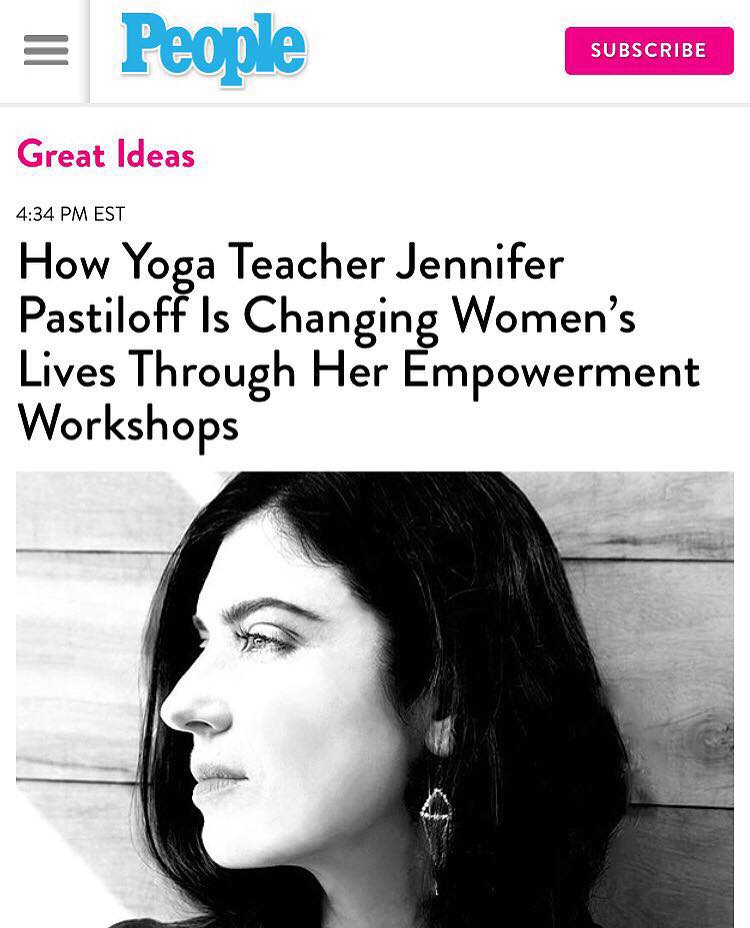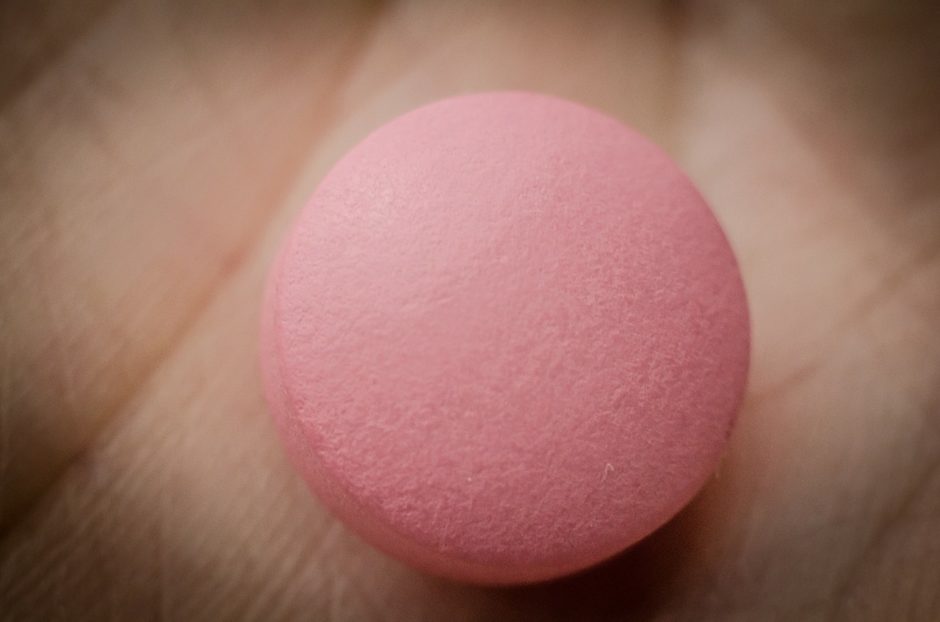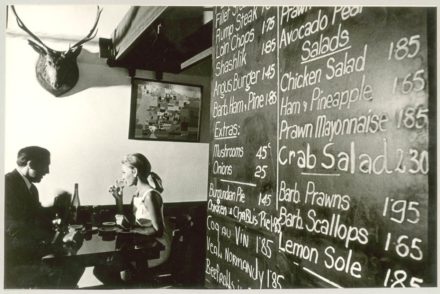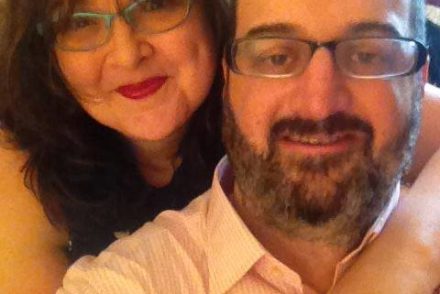By Anonymous
“Don’t drink. Continue taking your medicine,” my friend repeats in my ear as I throw bikinis into my carry on.
I half lift my head, slightly acknowledging her words of wisdom.
“Are you listening to me?” she asks, taking my silence as a worrisome sign.
“Sort of,” I reply, before turning my attention to a crop top.
I have this pattern- some call it subconscious self sabotage. I find myself in Italy, tempted by the tastes of fine wine. I know before I leave U.S soil that I will have some after a year of purity. The first glass tastes strange. It is airplane cabernet. I sip it very slowly, checking to see who is around me. I feel like I am doing something wrong. Sneaky. I don’t finish it. The second time I drink, I am at dinner. The pizza is much better than the wine. I do it again the next night, but with gluten free pasta instead. After a month, I leave Florence feeling like I am not in love with booze.
Weaning off medication comes gradually as well. My supply is running low, so I begin to cut the dose. At first it seems like a fine idea. My sex drive returns and I feel a heightened sense of creativity. As I move through the streets, I am turned on by life and the multitude of emotions passing through me. And then slowly I begin to slip. My Montmartre apartment becoming more and more appealing than an unexplored city. I am crying a lot, for no reason at all. I want to believe that I am releasing something, that the tears serve a purpose. But I am afraid it is just the same familiar sadness that has been haunting me since childhood. Before heading home, I start swallowing my pills again.
You see, I never intended to fall for Lexapro in the way that I did. Like typical love stories, it just happened. It was something out of my control, something beyond the small version of myself that I had grown to know. Once united, it felt like we were magic. Love at first sight, it was not. In fact, it was quite the opposite. The sort of tale that involves resistances and a consistent “no” towards any effort to connect. But after just a few months together, I wondered how we were ever apart.
I should rewind. I want to take you back to the beginning, to who I was before I became the me in love. You see, my dance with these sort of drugs began at the ripe old age of 8. I left New York City’s top child psychiatrist with both a diagnosis and a prescription for the newest SSRI on the market- Prozac. My parents may not have been thrilled but I’m sure that they took solace knowing there was a remedy to my pain.
I remember his office being sterile. No toys on the floor to play with, just expensive art and degrees from fancy schools on the wall. His manner was rather serious, charging an arm and a leg for an hour of his time. He asked me questions, attempting to probe deeply into my psyche. But this wasn’t my first time at a rodeo. I knew what he wanted, and rather than giving it to him, I sat in silence.
“Kenna, it’s not very helpful to either of us if you aren’t willing to speak.”
“I’m not interested in sharing.”
Instead, I focused on the clock. Tick tock, tick tock. Like I had done so many times before. My mother had started to come up with ways of getting me to therapy. Promises of happy meals and beanie babies. In fact, it took a trip to the toy store and french fries just to get me here. However, what happened once I was inside the room was never a part of the deal.
When we were finished, he deemed me very troubled.
“She suffers from defiant disorder.”
A term that would haunt me through my adolescence. Words that my mother took on as her own, using to explain why I didn’t want to go to school. Why I didn’t want to do much of anything. In their eyes, I wasn’t sad; I was bad. The remedy: drug her, of course.
Upon leaving with a script in tow, I knew that I never wanted to see that man again.
“He was awful,” I told my parents as we drove back towards Long Island.
“Kenna, you seem to think that about every doctor we take you to.”
“That’s because it’s true.”
This moment marked the beginning of my anti attitude towards anti depressants. One night after my parents had fallen asleep, I crept down our back staircase and ventured into the kitchen. There sitting on our windowsill was the orange and white container holding my happiness. I stared for another second before pushing my little body up to snag them. One by one, I took the capsules and carefully poured their contents into the garbage. The plan worked for awhile, until my doctor decided to up my dose by half. As my mom opened the pill with the intention of splitting the powder, she realized what I had done. Needless to say, my meds found a new home.
Begrudgingly, I continue with the prozac. I may have placed my sadness on hold for awhile, but that isn’t the only thing. Slowly but surely, my waist line starts to disappear. Packing on the pounds turned out to be a very common side effect of SSRIs. Still so young, I don’t think too much of it. It certainly doesn’t get in the way of me and my chicken nuggets. And so my weight marchs up, a solid 20 pounds.
Eventually I go off the meds. The time frame is fuzzy, but I spend most of my adolescence and teenage years unmedicated. Minus the month long stint in a mental hospital due to my refusal to go to school.
“I’m calling someone if you don’t get out of bed. You have to go to school, Kenna!” my mother screams at me, after an attempt at coaxing through chocolate chip pancakes.
“Call them! I hate school!”
And so she does. I am taken out of my home and placed into a white walled shit hole. A state run facility for kids with really big issues. Way bigger than my depressed, school hating self knows what to do with. When it comes time for therapy, I carry out my silent routine. Immediately they begin making me take something. A medication that makes everything go numb. I remember sitting on my bed, wanting to cry in horror over the place I have found myself in. But all I can do is stare out the barred window like a zombie.
After a couple weeks, I learn how to hide the medication in my mouth. Make it look like it’s gone from under my tongue when the nurses check. Soon enough, my personality comes back. I decide I want out and become less than cooperative. My big mouth leads me to spend a night in a padded room, total girl interrupted style. It also causes my 300 pound roommate to try to choke me in the middle of the night. Within seconds of screaming, three nurses pull her off of me. It doesn’t stop me from talking shit in the future.
The head doctor agrees with my defiant diagnosis.
“I think our best option is to send her away. Somewhere she will be safe and watched,” he tells my mother.
Rumors swirl around the unit about places like this. When I try to tell my mother, she doesn’t listen. Eventually the truth reaches news outlets like Dateline. These facilities are essentially expensive boot camps, ones that promise to reform troubled children. But allegations of sexual and physical abuse are lengthy.
“Told you so,” I remember saying to mother when the allegations surface.
Just months before my 19th birthday, I drop out of my dream school, UCLA. An old fiance of my father’s, an ex super model, opens up a bedroom in her Beverly Hills home. She also opens up her world, introducing me to all sorts of powerful people. But the assistance and meetings and focus on the external feels like way too much. A couple months later, I find myself in the strictest eating disorder hospital in the country. The model has turned me into my father, knowing very well what a raging bulimic looked like. This means a year of keeping food down and a steady inflow of pills.
By 22, I have tackled the eating disorder, but not the sadness. It is exhausting and relentless. As social media gains a greater influence in all of our lives, I am given a first class ticket into the worlds of happy and productive people. New jobs, relationships and trips are being plastered all over my computer screen. In comparison, I am barely living and it only worsens my depression. Working so hard just to make it out of bed or out of the house on days where I feel the lowest.
“Grocery shopping is not an accomplishment,” my boyfriend tells me.
Any depressed person knows that a successful action in the self care department is a small triumph, but comments like this along side my peers’ progressions, and I begin to feel like there really is something wrong with my brain. Because no matter where I am, whether it is the beautiful beaches of Punta Del Este or drinking a cappuccino in Paris, I am typically unhappy.
I eventually throw my hands up the air and find my way to an expensive psychiatrist on Robertson Blvd. Leave it to LA to give you a doctor’s office with paparazzi outside. After explaining my ailments, I leave with a script for Lexapro, plus something to sleep, something to take the edge off and something to help me focus. Following intense hallucinations and paranoia, I dump everything but the Lex down the toilet.
With each new white tablet swallowed, things start to change. I am smiling, finding laughter in simple moments. I feel more comfortable in my skin, having a break from the relentless negativity. People comment that I seem happier, more content. At peace, even. And so for the first time ever, I think that there might be something to medication after all. While it doesn’t go to the gym or job interviews or social gatherings for me, it greatly reduces the weighing darkness. Slowly I begin leaving the house more and more. Parties, even without a drink or five, are enjoyable. Sleeping is no longer my favorite activity and for the first time in my life, I am able to keep my word. No flaking, no irrational panic and no turning off my phone for days on end. When I finally give meds a real shot and add in the willingness to work, my world as I know it radically transforms.
But like most relationships, it isn’t all sunshine and roses. The SSRI may dry up all of my sadness, but it also takes things that I want: desired functions of the human body such as a sex drive, a range of emotions, a sense of empathy and a good metabolism. I quickly realize that this miracle worker comes with a heavy cost. And so my love becomes muddled, our connection filled with confusion as I struggle to navigate the inner workings of my brain.
Which person is the true me? The one pre or post Lexapro? While on the medication, I can only remember a faint trace of that depressed crying girl. So does that mean that this happy human staring back at me in the mirror is real? And what will happen if I stop taking the pills, to break up with my beloved once and for all. Will I go back to who I was before we met or will I remain forever altered?
One would think that when a girl meets the love of her life, she would do everything to keep that relationship strong. But not me. I develop a predictable pattern. Get on the meds. Feel good. Start to make real progress. Get off the meds. Feel awful. Antidepressants are tricky- once your brain is used them, you tend to feel worse then you ever have in your entire life without them. It’s never quite clear whether this is your natural state or the result of chemicals ruining your mind.
At 25 I am tired of medicating and questioning and feeling so god damn different. So I headeout on a four month solo adventure throughout Northern India. The journey is meant to be a sabbatical to find oneself. To clear the cobwebs from my mind and gain a sense of peace. I figure that I won’t need my daily dose inside the ashram walls. That it is the perfect place to face myself. But I also know that it is better to be safe then sorry- buried under my yoga pants is an unmarked pill bottle.
I never have to turn to meds during my time away. Life is simple and joy comes naturally. I meditate for hours each morning, before lingering through the noisy streets of Rishikesh. I meet amazing people and I am glad to be alive. When I mention to a new friend that I used to be depressed, they are shocked. The sad me, the medicated me- they all seem like dreams in a far off distance. A life that belonged to someone else. But back in LA, life gets hard again. I am covered in fear, struck with anxiety throughout the day. So I go back to what works, begrudgingly. Shouldn’t happiness be an intrinsic part of the human experience?
As the days progress, my life gets better. I am finally doing all of the things that I had once thought were impossible: working privately with clients, teaching healing workshops and getting paid to write. In many ways, none of this seems possible with out my chemical companion. But the questions that had always haunted me were still there. Am I more or less of myself on them? What am I missing?
Today I am still on medication. I am willing to accept that this could be a long-term thing, but also open to the idea that it’s temporary. I can always get off. And I can always get on. The meds work for me and leave me with choices. And choice is power. Which is something that so many in today’s world do not have.
Sometimes I bow to medication. Finding a great sense of gratitude for all that it has brought me. And other times, I hate it. For slightly numbing me to what is going on in Syria or shootings or in my own home. In an attempt to keep my dose low and one day maybe stop it all together, I meditate daily for 45 minutes, drink adaptogenic herb tonics, swallow a slew of vitamins, attend retreats, do tons of kundalini yoga, chant, work out regularly and try to focus on the idea that I am fine. That there is actually nothing wrong with me.
From where I stand, I have no idea how this love story will end. Maybe I will reach a place where meditation can take the place of my medication, but maybe not. What I do know is that I will keep experimenting and continue to share my story. It is through the exchange of human experience that we start to feel a little less alone, a little less broken and a little more connected. No matter what our supposed “defects” are, we are enough. Pills and moods and all.

Join Jen Pastiloff in Tuscany Sep 17-24, 2016. There are 2 spaces left. This will be her only international retreat in 2016 and is her favorite retreat of the year. Email barbara@jenniferpastiloff.com asap. More info here. Must email first to sign up.

Join Jen Pastiloff at her Manifestation Workshop: On Being Human in London Oct 1st and Dallas Oct 22. Click the links above to book. No yoga experience needed- just be a human being! Bring a journal and a sense of humor. See why People Magazine did a whole feature on Jen.

Check out Jen in People Magazine!





7 Comments
One of the most moving and somewhat thrilling pieces I’ve read since Carvell Wallace’s How to Parent on a Night Like This. Thank you so much for sharing your heart here. If we do what we’ve always done, we’ll get what we’ve always gotten. Nice work doing different.
thank you so much! i am just seeing this now.
🙂
I too have a ‘relationship’ with lexapro. I can’t even remember where or why i started. Was on Lorazepam to sleep, but thought perhaps lexapro was less dangerous? Long story, will spare you.
I am TERRIFIED .. i’ve read such horror stories about going off lexapro … and i WORSHIP my sleep!
i’m on 20, but will try going to 15 … VERY SLOWLY … my fear is overwhelming sometimes!!
I have a lexipro relationship too as well as Xanax and my recent addition Bupropin. I never went on meds until a divorce, menopause and the death of my dog pretty much shut me down for three months. When I started therapy, my therapist suggested I take some meds. I resisted, as I had just started doing bioidentical hormones. A month later I was still a pretty non-functioning mess. At that point she insisted. I started with Celexa and Xanax as Lexipro wasn’t on my insurance. It got me motivated again, and my life got better. I have never had the sexual side effects though. I gained weight but I thought it was partially due to the rebound from a crash diet I did to lose weight during the divorce time. But I wanted to get the weight back off.. After about three years or so, I thought my life was better enough to go off the meds—which I did very slowly to minimize any side effects. My life pretty much ground to a halt and I was functioning well. Again, my therapist had me go back on–but this time I could go on Lexipro, which I am told would actually help me lose weight, I stabilized for awhile but I haven’t lost weight, About two years later, even after staying on my meds, I felt myself grinding down again. My Nurse Practitioner suggested adding Bupropin to my meds. My energy is higher and I can focus more, but I’m still tired a lot. But I worry I don’t feel as much as I should, I feel tears coming close to coming out but they stop. I hate that I have to take these meds and I worry about the long term effects to my health and if they lose their effectiveness over time and I’ll have to keep taking more. It’s been a merry-go-round I am ambivalent about
This is helpful. Thanks for your story.
Golly, i just saw this page!! Dawn, this Lexapro thing is huge!! I know somebody (actually Jen) who went off Lex when she got pregnant (i think) .. anyway, it didn’t go well and she is happily back on. You know, if you were diabetic, you’d need insulin forever, etc. I was determined to see if the vertigo i had been experiencing for a few years, and the feeling of cotton in my head, had anything to do with the Lexapro. Fast forward, i stopped. It was right around the time that Kate Spade and Anthony Bourdoin died, and at that moment, i really understood suicide! I cried a lot, and didn’t feel so good … until, i did! not that i feel great .. a lot is going on in my life, and i feel what i feel is appropriate! whatever that means. I’m very interested in hearing how you do. And i wish you the beat of luck.
“Which person is the true me? The one pre or post Lexapro?“
this is really relatable for me, it sounds weird but without the feeling of being oppressed and overthinking all the time I feel certanly better but also like I’m missing a fundamental part of me that I could maybe be able to translate into something.
Nice story btw, thanks for sharing.